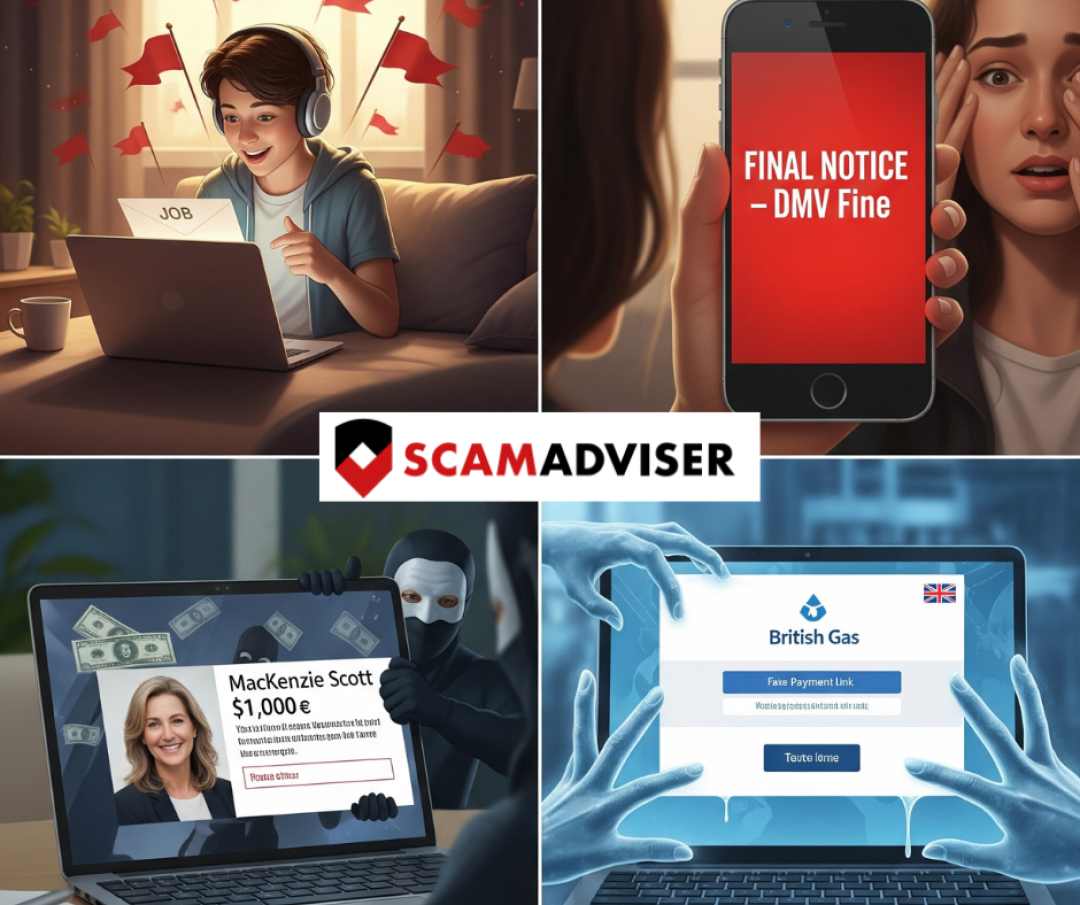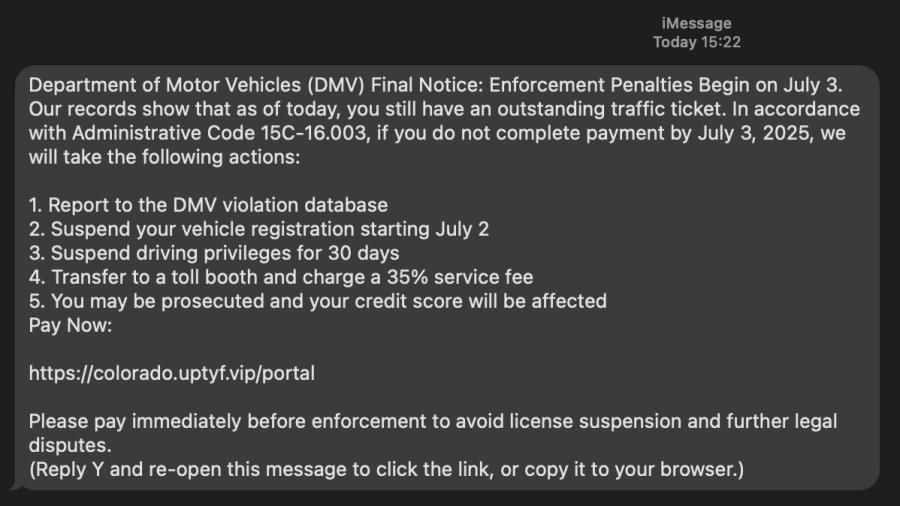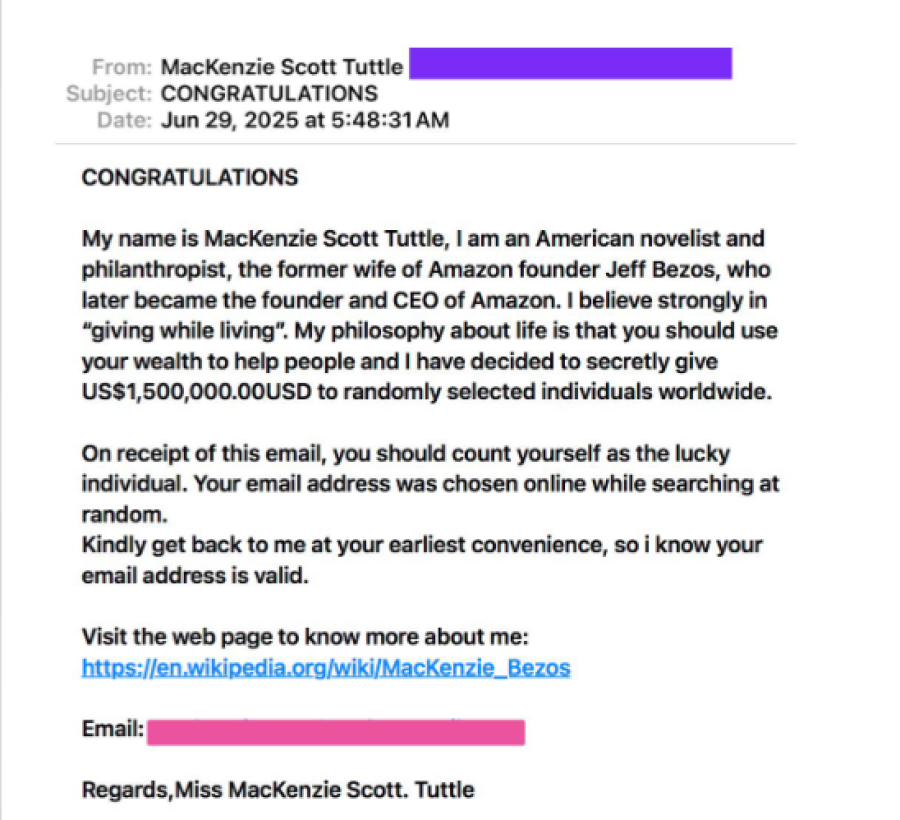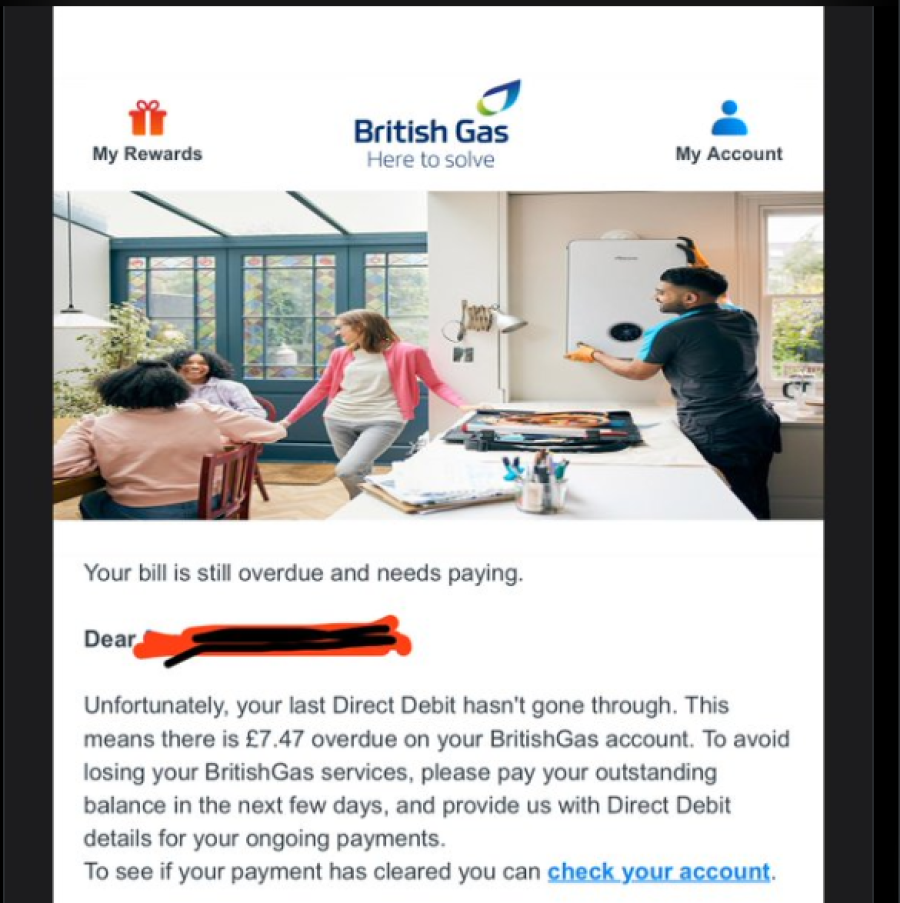Fake Jobs, Phishing Emails, and Fear Tactics – This Week’s Top Emotional Scams

Author: Adam Collins
Scams these days aren’t just sloppy typos and Nigerian princes. They’ve evolved. Now they wear a suit, quote philanthropy, impersonate official agencies, and offer you dream jobs from the comfort of your bed. How thoughtful.
This week, we’re diving into four sneaky scams making the rounds — from fake remote gigs to impersonations of billionaires and gas companies. If it sounds too good (or too terrifying) to be true, it probably deserves a hard side-eye.
Let’s break it down.
1. “Online E-commerce Assistant” – The Remote Job That’ll Leave You Broke
The Setup:
You stumble across a remote job listing that seems perfect. Work from home, earn $30–$80 per hour, no experience needed. Even training is included! The role? An Online E-commerce Assistant for the prestigious-sounding Alliance Recruitment Agency.

The job seems legit… until you’re asked to pay a “training fee,” provide your personal information, or start handling money or parcels.
What’s Sketchy:
- No company pays that much for 3 hours a day with zero experience.
- The company may be real, but the job listing isn’t.
- Real employers don’t ask for money up front.
Pro Tips:
- Always research the company and verify job listings on their official site.
- Be suspicious of high pay, low effort, and “no experience needed” jobs.
- Never pay to get hired. That’s not a job — that’s a scam.
2. DMV Final Notice – Fear Tactic in Overdrive
The Setup:
You get a terrifying message: you’ve racked up a fine from the DMV. You ignored previous warnings, and this is your final notice. Pay now, or face legal action, a suspended license, or something equally dreadful.

Click the link, and you're taken to a payment portal that resembles the DMV... until it swipes your card information and vanishes into cyberspace.
What’s Sketchy:
- DMVs don't usually text or email fines with links, and they certainly don’t sound like a movie villain.
- The link? Suspiciously short or misspelled.
- High-pressure language like “FINAL NOTICE” and “ACT NOW” = classic scam playbook.
Pro Tips:
- Visit the actual DMV website or call them directly to check fines.
- Never click on payment links from unexpected texts or emails.
- Government agencies don’t threaten payment in all caps.
3. “Congratulations! I’m MacKenzie Scott” – The Philanthropist with a Phishing Problem
The Setup:
You receive an elegant (ish) email from MacKenzie Scott, who — bless her giving heart — has randomly selected you to receive USD 1.5 million. Just confirm your email address so she can share the wealth.

The email includes heartwarming sentiments like “giving while living” and details about her ex-husband (yep, Bezos). All very noble — except for one detail: it’s fake.
What’s Sketchy:
- MacKenzie Scott does give money… but not via email lottery.
- Bad grammar, excessive zeros, and awkward capitalizations are dead giveaways.
- You weren’t "randomly selected." Your email was scraped.
Pro Tips:
- Delete any “you’ve won money” emails unless you entered a contest — and even then, triple-check.
- Never share personal or banking info with strangers (even generous billionaires).
- Report phishing emails to your provider or phishing-reporting services.
4. Impersonating British Gas – A Chilly Kind of Scam
The Setup:
An email lands in your inbox claiming to be from British Gas. It says your direct debit failed, and you need to pay ASAP to avoid disconnection. The email even addresses you — well, your email address — and kindly provides a handy link.

Clicking the link takes you to a convincing-looking site… that steals your login, personal, and financial data. No gas bill. Just hot trouble.
What’s Sketchy:
- Addressing you as “user@email.com”? Real classy.
- British Gas doesn’t send broken payment links out of the blue.
- The link? It’s about as legit as a fake ID on a high schooler.
Pro Tips:
- Don’t trust utility emails that address you by email only.
- Go directly to the company website if you’re unsure about a bill.
- If it smells phishy, it probably is.
Bottom Line: Scammers Want Your Trust. Don’t Give It Away for Free.
Today’s scams are smooth, emotional, and dressed like opportunity or authority. They want you to feel something — excited, scared, helpful — so you act without thinking.
But guess what? You’re smarter than that.
🔍 Before you click, pause.
🧠 Before you pay, verify.
📣 And if you got scammed, don’t stay silent — report it. It could stop someone else from falling for the same trick.
Stay One Step Ahead with ScamAdviser
Want to know if that job listing, gas bill, or generous billionaire is real?
Run a quick check on ScamAdviser.com — we verify websites, phone numbers, crypto wallets, and more.
On the move? The ScamAdviser App has your back 24/7. It’s fast, free, and always a few taps away from scam detection.
Because in the war against scams, knowledge isn’t just power — it’s protection.
Report a Scam!

Have you fallen for a hoax, bought a fake product? Report the site and warn others!
Scam Categories
Help & Info
Popular Stories
As the influence of the internet rises, so does the prevalence of online scams. There are fraudsters making all kinds of claims to trap victims online - from fake investment opportunities to online stores - and the internet allows them to operate from any part of the world with anonymity. The ability to spot online scams is an important skill to have as the virtual world is increasingly becoming a part of every facet of our lives. The below tips will help you identify the signs which can indicate that a website could be a scam. Common Sense: Too Good To Be True When looking for goods online, a great deal can be very enticing. A Gucci bag or a new iPhone for half the price? Who wouldn’t want to grab such a deal? Scammers know this too and try to take advantage of the fact. If an online deal looks too good to be true, think twice and double-check things. The easiest way to do this is to simply check out the same product at competing websites (that you trust). If the difference in prices is huge, it might be better to double-check the rest of the website. Check Out the Social Media Links Social media is a core part of ecommerce businesses these days and consumers often expect online shops to have a social media presence. Scammers know this and often insert logos of social media sites on their websites. Scratching beneath the surface often reveals this fu
So the worst has come to pass - you realise you parted with your money too fast, and the site you used was a scam - what now? Well first of all, don’t despair!! If you think you have been scammed, the first port of call when having an issue is to simply ask for a refund. This is the first and easiest step to determine whether you are dealing with a genuine company or scammers. Sadly, getting your money back from a scammer is not as simple as just asking. If you are indeed dealing with scammers, the procedure (and chance) of getting your money back varies depending on the payment method you used. PayPal Debit card/Credit card Bank transfer Wire transfer Google Pay Bitcoin PayPal If you used PayPal, you have a strong chance of getting your money back if you were scammed. On their website, you can file a dispute within 180 calendar days of your purchase. Conditions to file a dispute: The simplest situation is that you ordered from an online store and it has not arrived. In this case this is what PayPal states: "If your order never shows up and the seller can't provide proof of shipment or delivery, you'll get a full refund. It's that simple." The scammer has sent you a completely different item. For example, you ordered a PlayStation 4, but instead received only a Playstation controller. The condition of the item was misrepresented on the product page. This could be the
